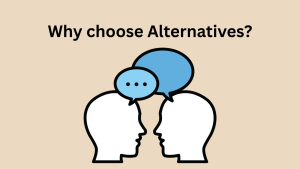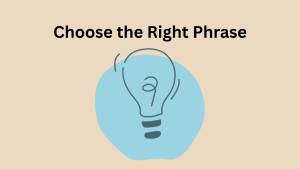In professional and personal communication, the phrase “I look forward to” is a staple for expressing anticipation. However, overusing it can make your messages feel repetitive. Diversifying your language not only keeps your communication engaging but also conveys your enthusiasm more effectively.
Why You Should Stop Overusing “I Look Forward To” (and What to Say Instead)

Using varied expressions to convey anticipation can:
- Enhance Engagement: Diverse language captures attention and maintains interest.
- Reflect Authenticity: Tailored phrases can better match your genuine feelings.
- Demonstrate Emotional Intelligence: Choosing the right tone shows empathy and understanding.
- Avoid Monotony: Fresh language prevents your messages from sounding formulaic.
You may love this one: 30 Other Ways to Say ‘I Hope Life Is Treating You Well’
Formal Alternatives for Professional Settings
In business or formal contexts, it’s essential to maintain professionalism while expressing anticipation. Here are some refined alternatives:
I am eager to…
Example: “I am eager to discuss the upcoming project with you.”
I anticipate with interest…
Example: “I anticipate with interest our meeting next week.”
I am keen to…
Example: “I am keen to collaborate on this initiative.”
I await your response with anticipation.
Example: “I await your response with anticipation regarding the proposal.”
I am enthusiastic about…
Example: “I am enthusiastic about the opportunity to work together.”
I am looking ahead to…
Example: “I am looking ahead to our strategic planning session.”
I am prepared for…
Example: “I am prepared for the challenges this project may present.”
I am hopeful for…
Example: “I am hopeful for a successful outcome from our collaboration.”
I am counting on…
Example: “I am counting on your support for the upcoming launch.”
I am set to…
Example: “I am set to begin the next phase of the project.”
Casual Alternatives for Informal Settings
For more relaxed interactions, these expressions convey excitement and anticipation:
Can’t wait to…
Example: “Can’t wait to catch up this weekend!”
I’m pumped for…
Example: “I’m pumped for the concert tonight.”
I’m stoked about…
Example: “I’m stoked about our road trip next month.”
I’m itching to…
Example: “I’m itching to try out the new restaurant.”
I’m thrilled to…
Example: “I’m thrilled to be part of the team.”
I’m jazzed about…
Example: “I’m jazzed about the upcoming workshop.”
I’m buzzing for…
Example: “I’m buzzing for the game tonight.”
I’m psyched to…
Example: “I’m psyched to start the new project.”
I’m counting down the days to…
Example: “I’m counting down the days to our vacation.”
I’m over the moon about…
Example: “I’m over the moon about the promotion.”
Contextual Alternatives for Specific Scenarios
Expressing Anticipation for Collaboration
I am excited to collaborate with you.
Example: “I am excited to collaborate with you on this project.”
I look forward to our partnership.
Example: “I look forward to our partnership yielding great results.”
Awaiting Feedback or Results
I am eager to hear your thoughts.
Example: “I am eager to hear your thoughts on the proposal.”
I await your feedback with anticipation.
Example: “I await your feedback with anticipation.”
Anticipating Events or Meetings
I am looking ahead to our meeting.
Example: “I am looking ahead to our meeting next week.”
I am preparing for our upcoming discussion.
Example: “I am preparing for our upcoming discussion on the project.”
You may love this one: 30 Other Ways to Say ‘Thanks for Checking In’
Tips for Choosing the Right Phrase

- Match the Tone: Ensure the alternative aligns with the formality of your communication.
- Be Genuine: Choose expressions that reflect your true feelings.
- Consider the Relationship: Use more formal alternatives for new or professional relationships and casual ones for familiar contacts.
- Avoid Overuse: Even with alternatives, vary your expressions to keep communication fresh.
A Few More Unique Phrases to Try
These lesser-used phrases can help your emails and messages stand out:
I can hardly wait to…
Example: “I can hardly wait to share the results with you.”
It’ll be great to…
Example: “It’ll be great to connect and brainstorm ideas.”
Anticipating with great interest…
Example: “Anticipating with great interest the final decision.”
Excitedly awaiting…
Example: “Excitedly awaiting the kickoff meeting.”
Expecting positive news regarding…
Example: “Expecting positive news regarding our grant submission.”
Hopeful for the next steps
Example: “Hopeful for the next steps we’ll take together.”
Prepared and ready for what lies ahead
Example: “Prepared and ready for what lies ahead in the campaign.”
With high hopes for…
Example: “With high hopes for our continued success.”
Readily anticipating…
Example: “Readily anticipating our next team event.”
How This Improves Your Communication
Replacing “I look forward to” with stronger, more descriptive alternatives can have several benefits:
- You stand out in job applications or proposals.
- You sound less robotic and more personable.
- Your enthusiasm feels genuine and specific.
- You build better rapport with the recipient.
Final Thoughts
While “I look forward to” is widely accepted, it doesn’t always capture the tone or personality you may want to convey. Whether you’re writing a cover letter, networking email, project follow-up, or a personal note, using fresh alternatives can add clarity, warmth, and professionalism to your communication.
Challenge yourself: In your next email, swap out “I look forward to” for a phrase that reflects your true enthusiasm. You’ll not only sound more authentic—you’ll also leave a more memorable impression.
Deven Kumar is the passionate writer and founder behind povforbook.com, a website dedicated to exploring unique perspectives in literature and storytelling. With a deep love for books, language and traveling, Deven aims to inspire readers by sharing insightful reviews, thought-provoking synopses, Guiding tourist by sharing personal experience and engaging content that highlights the power of narrative. When not writing, Deven enjoys connecting with fellow book lovers and traveling lovers and continuously discovering new voices in the literary world.
